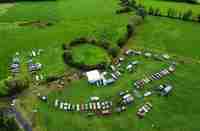Overhaul of energy market needed more urgently than clampdown on sale of turf

The motivations for this turf ban are no mystery; we are all well aware of the disastrous effects fossil fuels cause our planet. However, despite the looming threat of environmental damage, Minister Ryan’s announcements were met with a degree of criticism – particularly from those of us living in rural areas.
There is a considerable gulf between a lot of politicians and rural people when it comes to this issue, presumably due to the fact that many people living in rural areas are totally reliant on solid fuel. This is without even addressing the soaring energy prices we’ve been seeing the past while.
It’s worth noting that this isn’t the first time we’ve seen this type of reaction to environmental practices by those living in rural areas. For example, in 2019, then-Taoiseach Leo Varadkar’s admission that he had reduced his consumption of red meat in order to be more environmentally-friendly, was met with criticism by some in the beef farming industry, with Patrick Kent (then-President of the ICSA) condemning Varadkar for “calling into question the sustainability of Irish beef production”.
There is indeed a conversation to be had about sustainability and rural living. Despite urban areas being responsible for a significant amount of carbon emissions and pollution, it is worth noting that the per capita consumption of key resources is often lower in urban areas than rural ones, due to smaller living and garden spaces, less dependence on cars, and more efficient use of public infrastructure. However, consideration still needs to be given as to how to realistically enact positive environmental changes without significantly disadvantaging everyday people in rural areas.
As mentioned, the issue of turf-cutting is a point of particular contention, given the recent increase in the cost of living and energy prices. Irish people are struggling to heat their homes, and now are faced with having one less affordable option to consider when doing so.
Earlier this month, TD Paul Cassidy posted a tweet condemning SSE Airtricity’s 24% increase to the price of their ‘100% green’ electricity, saying: “The cost of wind has not gone up”. Deputy Cassidy’s point here is slightly misguided – all of Ireland’s electricity is fed through the same grid, meaning it’s no surprise SSE customers are also being hit with price increases – but his tweet does inadvertently highlight another issue: the fact that suppliers are able to disingenuously claim to provide ‘100% green energy’.
The nature of the Irish energy market and electricity grid allows for suppliers to market themselves as providing ‘100% renewable energy’. Because Ireland only has the one electricity grid, every household in Ireland feeds from the source. This means that even if you are on a ‘green plan’, a significant portion of the energy you’re supplied may still be generated from fossil fuels.
Irish people – and in the context of this recent mooted turf ban, rural people in particular – are at this point being asked pretty routinely to do their part on an individual level to combat climate change. We’re heeding advice to take shorter showers, take less car journeys, and not overfill the kettle. It goes without saying that this advice isn’t without merit; acts of individual environmental stewardship do make a difference. However, it is very disillusioning to be expected to be a good environmental steward when our energy suppliers are allowed to not be transparent.
I have mentioned it before in a previous column, but I want to echo the sentiment that significant environmental progress will come about by forgoing financial prioritisation and not relying so heavily on the actions of the individual. If we truly want to reach our climate targets, not only must we demand greater transparency from our energy suppliers, but huge investment needs to be put into the grid to make it fit to accommodate large amounts of renewable energy, as well as upfront investment for wind farms, solar panels, etc.
Rural people will be the ones who suffer if our approach to dealing with the environment is heavily reliant on hastily-enacted regulations, when rural areas could well indeed offer lots towards the climate fight. We are at a critical point in the environmental crisis, and I am fully on board with making sustainable changes on a personal level; it’s just difficult to reconcile the onus being put on the individual with the lack of investment and transparency when it comes to renewable energy.
I worry about the knock-on effect an overhaul of the energy market would have on the average consumer (who is struggling already), but surely it would at least have a more significant environmental effect than not being able to lend a neighbour some turf?






